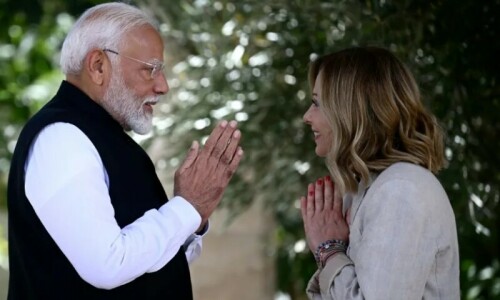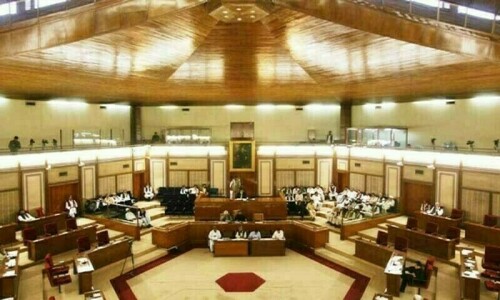THE information being revealed by WikiLeaks about this generation of political players is perhaps reminiscent of earlier disclosures of a similar kind; but the sheer scale of the revelations in this case is staggering. The world has perhaps never before been provided with such a large volume of evidence about the wheels within wheels and the shady deals and negotiations that lurk in the shadows of inter-state diplomacy. State relations and governance across the world have historically been conducted on the assumption that certain information should and can be kept out of the public domain. It is unsurprising, then, that governments and political players have on different occasions succumbed to the temptation of resorting to means that are hardly considered acceptable. Technology is rapidly changing that. One of the most important lessons to be learnt from the WikiLeaks’ disclosures is that states and governments should not assume that their secrets will forever remain under their control. Governments are run in the name of the people to whom they are accountable. The discomfiture of various political players after the WikiLeaks exposures should make it amply clear that in one way or the other, the truth will come out. And with advances in technology, this is likely to happen sooner rather than later. Transparency is required to win the people’s trust.
For Pakistan, where the WikiLeaks cables have caused widespread consternation amongst political and military circles, there is a whole set of lessons to be learnt. The pettiness of a number of national leaders has been exposed by the sort of things they are quoted in the leaked cables as having said about each other. More depressing, perhaps, is how most of Pakistan’s civilian and military leaders appear to consider the US envoy as some sort of viceroy who should be appealed to for domestic concerns. Other disclosures have cast the country’s claimed counter-terrorism and military strategy in a new light. One set of cables shows as false Pakistan and US officials’ long-repeated denial about the US military presence here. It turns out that the US Special Operations Forces have been conducting joint operations with Pakistan’s forces. It is now evident that Pakistan’s leaders quietly approved of drone attacks inside Fata, giving a lie to earlier claims that no such permission had been given. The public has for a long time been asking for clarity in the government’s stand on drone attacks. Now, the matter stands exposed. The lesson, again, is that political players must not only be careful of what they say, and to whom, but transparency must be ensured as a matter of policy.








































Dear visitor, the comments section is undergoing an overhaul and will return soon.